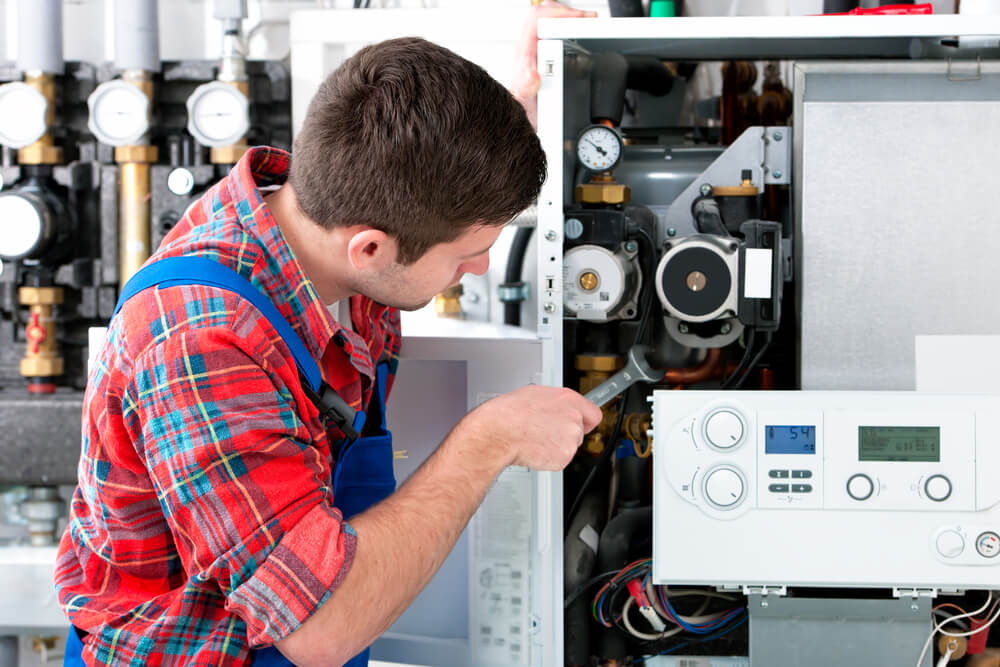
Why Should I Bleed My Boiler?
There are several reasons why you should bleed your boiler. However, there is a process for bleeding a boiler properly. Here you can find some of the very important reasons as to why you should bleed your boiler and exactly how to do so in a way that fully bleeds the boiler properly. Let’s get started!
What Does It Mean to Bleed a Boiler?
Bleeding a boiler is when you release all the air out of the boiler. This involves the entire system. That includes the water area and the entire heating system. There are several reasons as to why this is necessary but for now, that is what bleeding a boiler is.
According to Smith Heating & A/C Service, a group of HVAC contractors in Athens, GA, when bleeding a boiler, the entire system should be emptied. Not only should the boiler be emptied, but the water pump, pipes, air vents, valves and expansion tank are all included in the emptying process. The radiator will get bled too and should be the first step in the process, but sometimes the entire boiler should be emptied out.
More information on how to bleed a boiler can be found at Vasco.
Why Do They Need to Be Bled?
As you many know, there are important reasons as to why you should bleed a boiler. However, the main reason that a boiler should be bled is to release trapped air. But should you really bleed and entire boiler because of something that seems so harmless? The answer is yes. Air trapped inside the boiler can cause all kinds of issues. One sure sign that air is trapped inside of a boiler is a knocking sound inside of the lines when it is operating.
Another very good reason to bleed the boiler of the trapped air is to have a home that is heated properly. The whole purpose of running a boiler is to have a nice and cozy home when temperatures outside drop. So, the first reason is for comfort. However, the next reason is for money.
When air gets trapped inside of a boiler, this can result in improper heating, which in the long run can cost more money. This can also cause additional wear and tear on the boiler and cost you more to run the boiler to heat your home. It is an added expense that is unnecessary and can be prevented by bleeding the boiler.
What Are Some Signs the Boiler Needs to Be Bled?
As noted above, one sign that a boiler needs to be bled is noise coming from the lines when the boiler is running. However, another sign that the boiler will need to be bled is when the home is not heating like it should be. Also, the top of the radiator will feel much cooler. If there are any of these signs, then the boiler will need to be bled.
To find more information on signs that a boiler needs to be bled, you can visit this YouTube video for more information..
How Does Air Get into the Boiler?
If you think you can prevent air from getting into the boiler, you are mistaken. Air can get into the boiler in several ways and some ways cannot be avoided. One way that air gets into the boiler is by adding water to it. Also, the boiler has a circulator pump that is connected to it to move the heat around the home. Air can get into the boiler because of that. The air circulator pump can create tiny air bubbles as the rotation occurs.
Air can also get into the boiler in other ways that may need to be addressed. If there is a leak in the line, air can get into the boiler that way. After the leak is fixed, the boiler should still be emptied of everything to prevent any further heating issues.
How Is a Boiler Bled?
One of the most important steps and the first step to bleed a boiler is to make sure it is shut off. The drain valve that is located on the side of the boiler should have a place to attach a hose. Once the valve is closed, you can attach a hose to it and then reopen the valve.
The boiler should then be able to be completely flushed. This may take a little bit of time. Allow the water to flow into a bucket until all the air bubbles come out. This will allow for better heating and lots of money saved. A professional is recommended for the process to be done effectively and safely.

